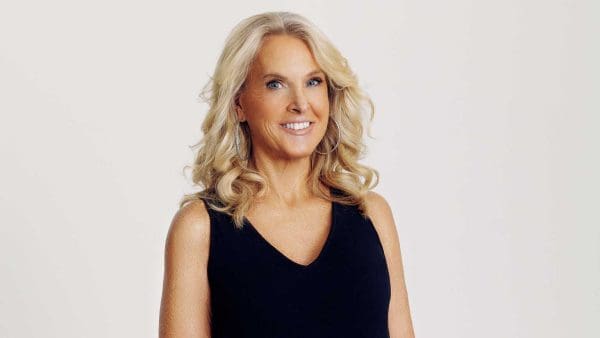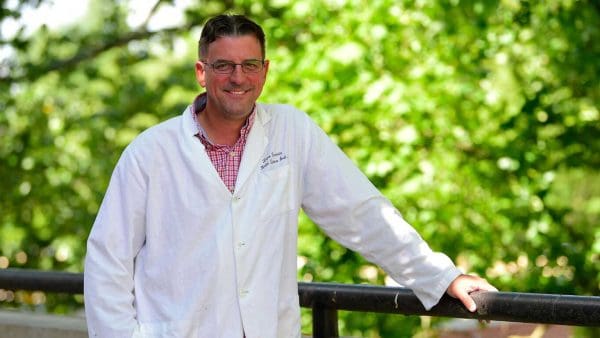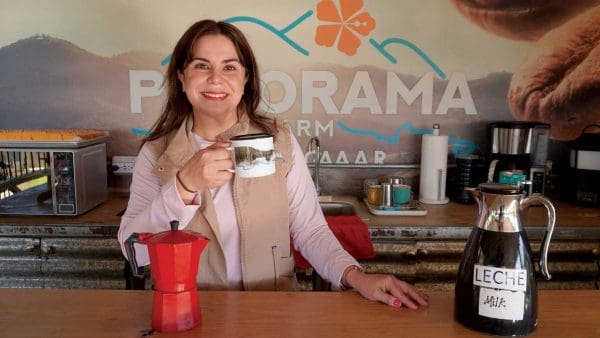Currently teaching journalism and freelancing in Seattle, Silberner draws on her rich 18-year career with NPR. [Photo: Tom Reese]
Not much rattles Joanne Silberner ’77. An award-winning veteran journalist and public radio reporter, Silberner has tackled the toughest stories, covering global health issues that have taken her from Cambodia to Haiti. Yet, even she had to take a deep breath when she walked into a certain new assignment.
“Yes, I was scared walking in the first day of my class,” she recalls. “There are 18 kids looking at you for wisdom, and you find yourself explaining what you have done for the last 30 years. A lot of what I’ve done over my career has been instinctive, so trying to teach that is a real challenge.”
That was in 2011, a few months after she relocated to Seattle, where her husband had accepted an academic post. In making the move, Silberner left behind an 18-year job at National Public Radio, covering everything “from the Food and Drug Administration to the chocolate industry in Brazil.”
Resourcefulness, however, seems to be hardwired into Silberner’s DNA. She soon re-launched her career as artist-in-residence in the University of Washington’s Department of Communication, teaching classes in global health reporting and narrative journalism. At the same time, she began actively freelancing for NPR and The World program on Public Radio International (PRI), as well as other public radio outlets, websites, and print publications. As she puts it, “While I say I currently teach half time and write half time, it’s more like 75 percent and 75 percent!”
Oddly enough, it was an early decision not to be a writer that led Silberner to her current career. Because of a discouraging experience with a high school English teacher, she vowed to pursue the sciences in college and “have nothing to do with writing or literature ever!” However, as a biology major at Johns Hopkins, she took a class in science writing during a semester away at the University of California. To her surprise, her professor was greatly encouraging about her work.
Back at Hopkins, she remembers, “You could find someone doing interesting work at Homewood or at the hospital, and talk yourself into a temporary place in his or her lab—kind of like doing a story. The university really gave me the tools to go out, ask questions, and appreciate the answers.” By the time Silberner graduated from Hopkins, medical journalism was her chosen path.
After earning a graduate degree in journalism from Columbia University, Silberner landed her first full-time job at Science News in 1982, followed by a stint at U.S. News & World Report, and ultimately, her position as a health policy correspondent at NPR, focusing on mental health, governmental health legislation, and international health.
But her eventual move to Seattle and return to freelancing proved to be a turning point in Silberner’s career. Through the support of PRI and a travel grant from the Pulitzer Center on Crisis Reporting in 2012, she journeyed to India, Uganda, and Haiti to produce Cancer in the Developing World: The Economics of a Disease. Her five-part radio series brought to light the terrible toll cancer is taking in poor countries, where more succumb to this disease than from HIV/AIDS, tuberculosis, and malaria combined.
“The sole reason I did this series? It was a big problem no one was talking to the public about—and a lot of it is preventable,” she says. “For example, almost 20 percent of cancers worldwide are caused by viruses, which at least theoretically could be stopped by a vaccine. All of these problems are easy to tackle if you have the interest.”
For this groundbreaking reportage, Silberner received not one but three awards last year, sharing top honors of the European School of Oncology’s (ESO) 2013 Best Cancer Reporter Award; the 2013 Communication Award from the National Academy of Sciences, National Academy of Engineering, and Institute of Medicine; and the 2013 Victor Cohn Prize for Excellence in Medical Science Reporting. In particular, the Cohn Prize judges applauded Silberner for “consistently breaking new ground in a heavily covered beat, and recognizing new angles in important stories rather than offering stories that everyone else covers.” For Silberner, “it was very validating. All of a sudden, I won the trifecta!”
As she forges ahead with her teaching duties and a new set of assignments, which includes a new series on global health and private industry, Silberner acknowledges she is drawn to what she calls “neglected stories.”
“Amy Goodman, host of the Democracy Now radio program, once said, ‘Go to where the silence is and say something.’ That’s to me what journalism is all about. That’s what I’m trying to do now with my global health reporting. I look to where the silence is—and then I go! The best I can do is to let other people know what is happening.”





